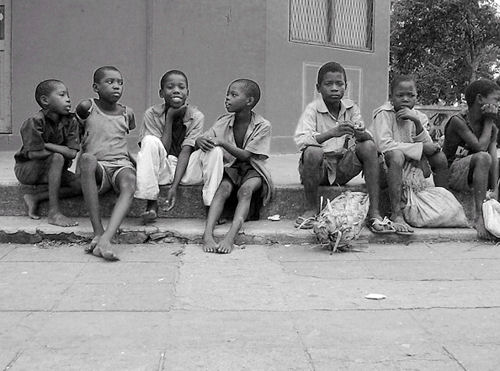KOTI JOURNEY – MACHAMBA PROJECT, MOZAMBIQUE
1. BACKGROUND
Mozambique is amongst the very poorest countries in the world and is well known for its struggles such as the crippling civil war destroying 2,500 primary schools and 800 clinics and hospitals with more than 1 million be killed between 1976 and 1992. Devastating floods have also affected the land, the most destructive in recent years was in February 2000 washing away 100,000ha of crops and making 500,000 homeless.
The country has a significant North /South divide, the capital being situated in the very South and the poorer, less educated people in the North. The Koti are an island and costal people group of about 60,000 people located in Nampula Province in Northern Mozambique centred around the old Arab trading port of Angoche. They rely upon fishing and subsistence farming for survival. Most of the women have not received an education and consequently do not speak Portuguese. The cyclone of February 2008 destroyed about 300 of their homes (cyclones hit about once every 4 years). A work called Taarikhi ya Haakhi (The True Way) has begun to bring transformation to the community with 4,000 people being “washed” (baptised) since 2,000. Currently financial support comes from mainly New Zealand and Japan but this has only really managed to prevent further starvation and with a widespread lack of finances most do not have access to medical resources for example for the treatment of malaria which is widespread. Some funding initiatives thus far have helped to build a school on one of the islands (now washed away due to rising sea levels) and provide a fishing boat and nets.
2. WHAT IS THE MACHAMABA PROJECT?
“Machamba” means farm and the project provides land which can be cultivated so that 30 of the most needy Koti families can grow crops which will at least provide food for themselves but also can be used to support others in need. Most of the land occupied by the Koti is very sandy and is not very suitable for cultivation.
Short Term Aims
At this stage the main aim is self-sufficiency for the 30 families working on the land and distribution of surpluses to others in need. Families have been selected from 6 of the poorest island and costal locations and have now moved 50 km inland to a remote rural area on the edge of Angoche District. This is a radical step as the people have to be shown how to get the most out of the land and work together as a community which is very counter-cultural. If they are prepared to learn from the good advice which is available in terms of basic agricultural techniques and work together as a community this will be a significant achievement in itself. Giving them a sense of achievement and self-worth due to a successful project and experience and skills to share with others would also be very important.
Long Term Aims
This has the potential to be scaleable so it could be rolled out to more people and also be developed into a Community Business. The initial project can be used as a trial-run to identify the challenges and opportunities and develop the best possible model. This will also lay the foundations for other similar initiatives.
Resources
We have two men who live about 15km from the project and have demonstrated their agricultural abilities by growing crops with a good yield. They are training people at the Machamba and will bring regular reports to the leadership team. Also there is a really good administrator based in Angoche who will maintain records for circulation to 3rd parties based upon these reports. Leadership meetings are held every Wednesday morning and currently reports are presented from 13 different centres representing a total of 90 “Families of Faith” (churches). These are then translated into a summary and sent to Graeme Fawcett in Japan. There is also access to a small 4 x 4 pick up which can act as a support vehicle for the project. Julian is not Project Managing this venture but is part of the Koti team responsible for its delivery.
3. REQUIRED FUNDING
Julian has currently identified a project budget of £4,000 for 2009 but has not put together any projections for subsequent years as so much will depend upon this trial.
Funding requests have been made to churches in the UK, New Zealand and Japan and a few individuals have expressed interest via the Koti Journey blog.
Initial capital investment (housing, land and tools) £1,575
Other start up costs (seeds, transport and food) £755
Total start up costs £2,330
Projected costs through to Dec 2009 £1,800
Total budget for 2009 £4,130
Note: more detailed budget information is available by request to julian@bullens365.co.uk

Boys from the families about to leave for the Machamba
This page is also available to download in pdf format – CLICK HERE
[…] Machamba […]
By: Machamba « Koti Journey on February 2, 2009
at 8:20 pm